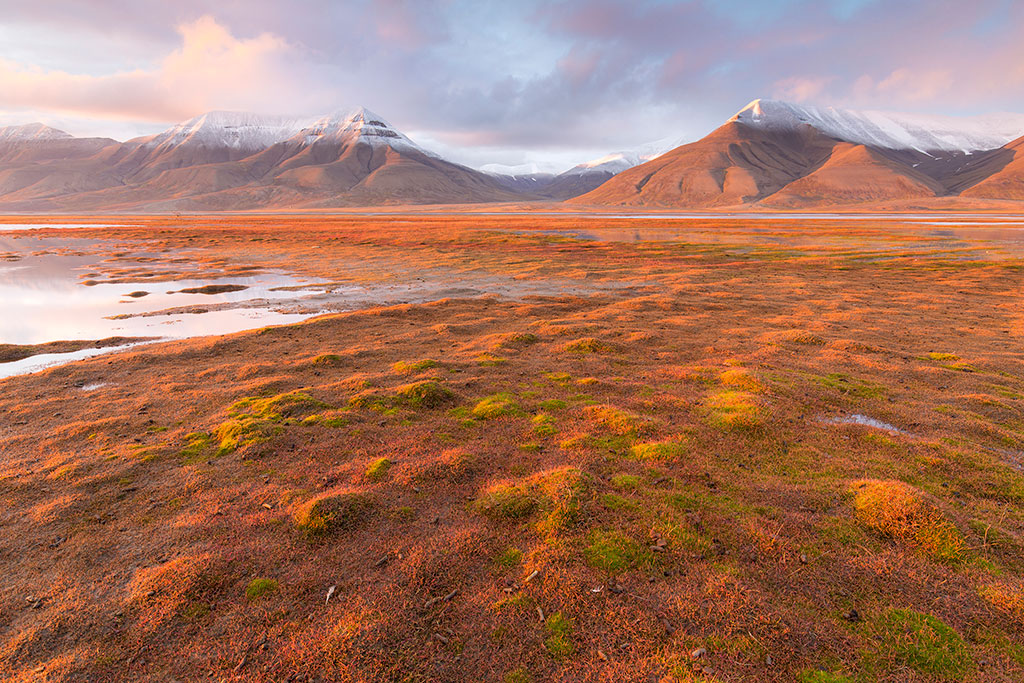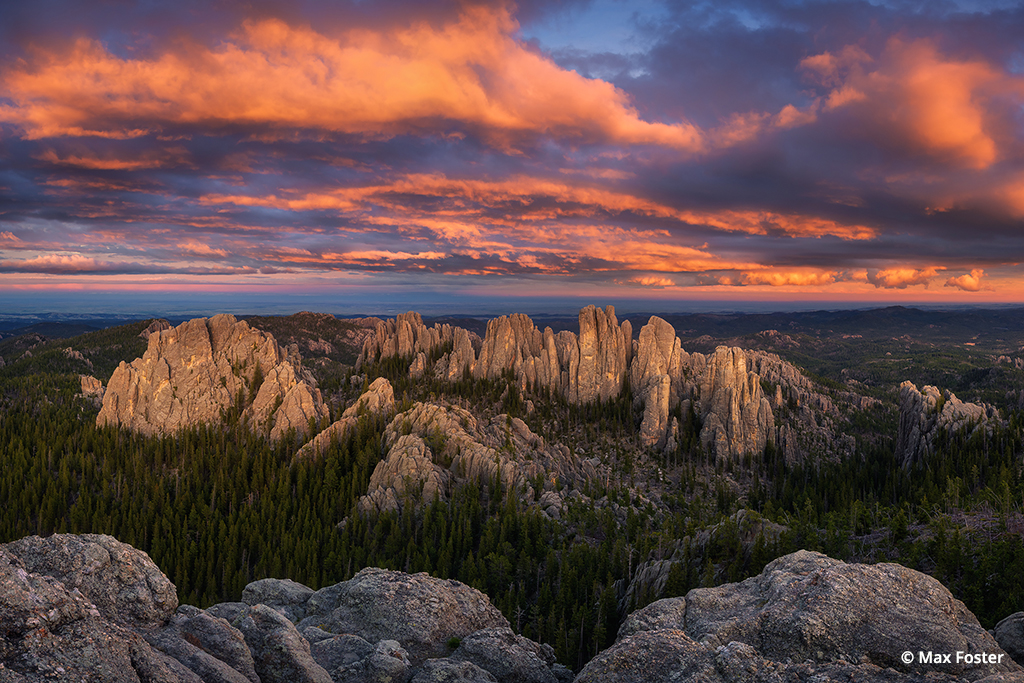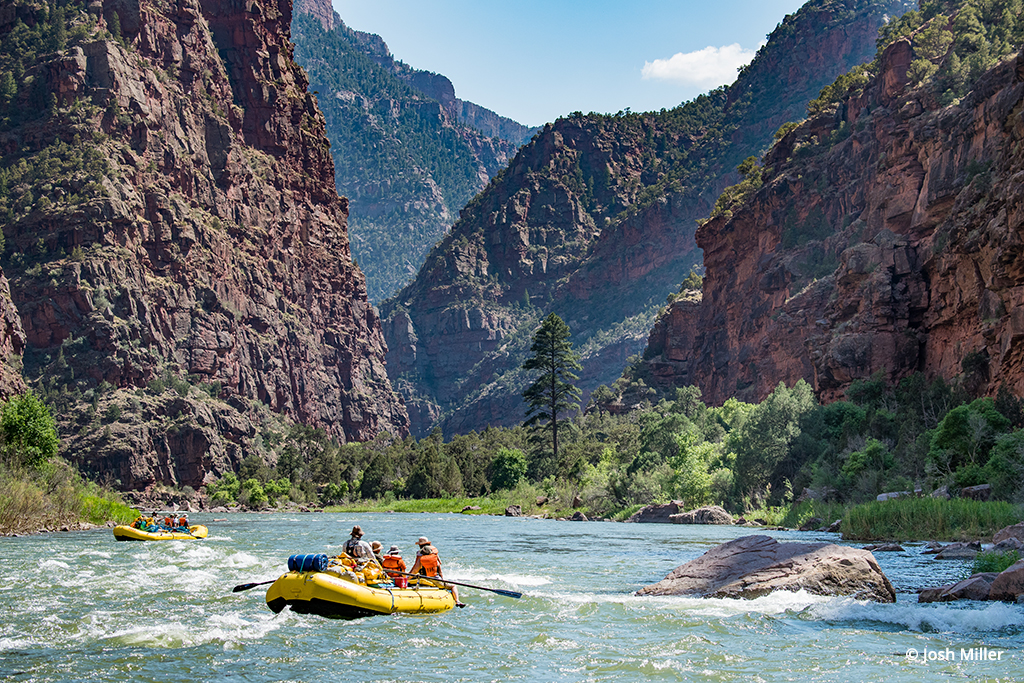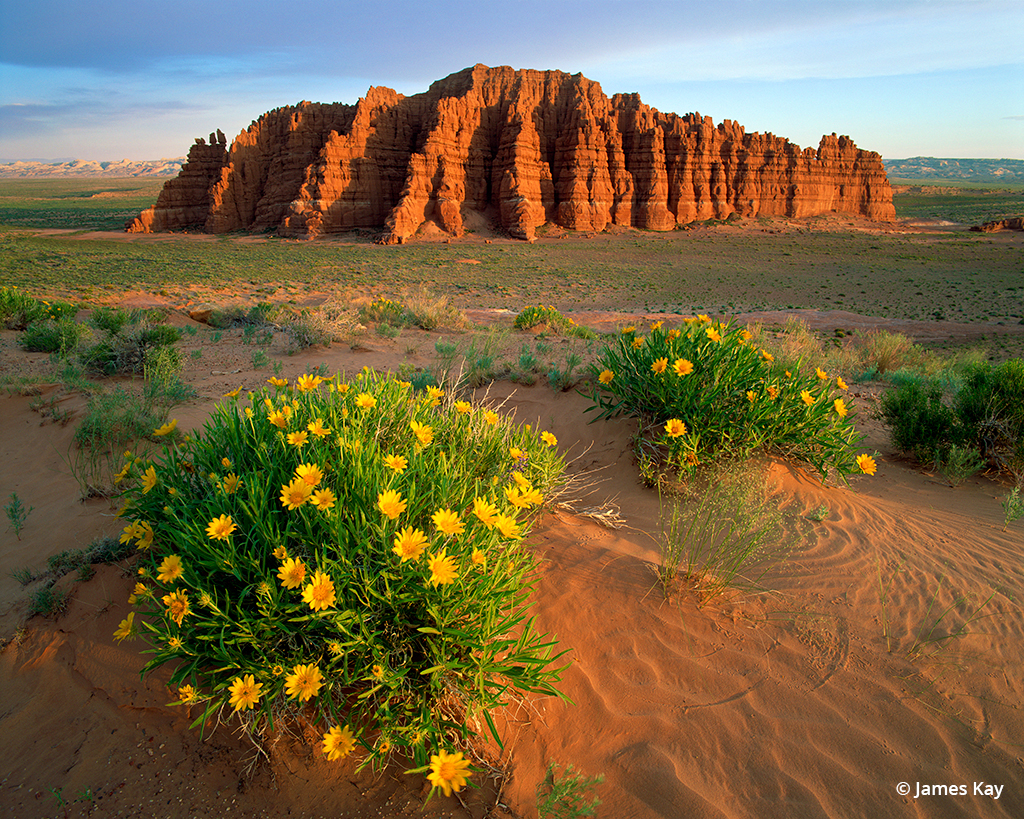Advertisement
Advertisement
Read Next

Why You Should Visit Svalbard In Norway For Photography
Svalbard in Norway features untouched...
The Needles
The Black Hills of South Dakota cover...
Dinosaur Adventure!
After feeling trapped at home for the...
Wildlands Of Utah
Look outside Utah's national parks to...Advertisement


Choose The Best Workshop
A workshop can be a great way to improve your skills and knowledge about photography. So how do you connect with the right workshop for you? Not the best workshop for anyone, since that doesn’t exist, but the best workshop for your needs and interests. To start, it helps to understand that there are many types of workshops, and sometimes choosing the right type will make all the difference.
Tours
Tours go to a specific and special area. You’ll be traveling through that area as you photograph. Pick one of these tours to get you to a great location with the assistance of a guide (or guides) who will help with both photo and location challenges. Obviously, the location is important so choose carefully, including by doing research about the location separately from the promotional material from the tour group. Know a little bit about the weather at the location and other conditions. Even the greatest tour leader won’t be much help if you dislike the location and the conditions there.
That also goes for accommodations. Some tours will book luxury hotels for the comforts they provide, and other tours will pick smaller, local accommodations that get you closer to the action. Neither is arbitrarily right or wrong, but can be right or wrong for you.
A tour gives you the opportunity to photograph with a bunch of like-minded photographers at a great location as determined by your guide. That guide is important because you’ll be spending some time with him or her, although don’t expect a tour guide to be the same as a classroom instructor. There simply isn’t the time or the opportunity for such instruction.
Preparing for a tour. Research the location ahead of time. Check out some travel books from the library, go to your local bookstore or explore online. Know a little about the location, including getting an idea of how other photographers have approached photographing the area. Check out the expected weather so you’re prepared with the right clothing. The wrong clothing on a tour can be worse than the wrong camera gear if the weather is uncooperative. Learn a little about travel to and from, as well as in, the area so you’re not surprised by what the tour will entail.
Classroom-Based Workshops
Many locations across the country, and even the world, offer a classroom-based workshop at a specific location. These workshops are generally in locations that work well for photography, so you’ll usually go out and photograph in the area for part of the time, then come back to the classroom for critiques and other discussion. The exception to this can be image-processing classes, such as Photoshop classes, where all of the work is done at the computer. I find that even these classes work best when you get a chance to do some shooting at the same location as the rest of the class.
Classroom-based workshops are highly topic-oriented. This is where you can find a workshop that fits some specific needs in your growth as a photographer. They vary from classes for beginners all the way to advanced classes on almost any topic. Be sure to pick a topic that fits your needs and an instructor who’s well experienced in that topic.
Preparing for a classroom-based workshop. Check with the workshop leaders for recommended equipment. Many workshops have such specific topics that the equipment also is specific. However, some workshops will have specialized equipment to borrow at the workshop. Find out what’s available and what will be needed. If it’s suggested that you bring along a selection of images, be sure to choose those that are most appropriate to the class topic. If you’ll be spending time outdoors in the workshop, check to see what the weather conditions are likely to be.
Field Workshops
A field workshop is like a tour and like a classroom. Field workshops are located in specific and special locations. Unlike a tour, a field workshop will generally stay in just that location. Similar to a classroom-based workshop, most field workshops have specific topics related to the location. These can range from landscape photography to bird photography to macro photography and more. The best field workshops marry the topic to the location so that it seems natural to be shooting that particular topic in that particular location.
Unlike a classroom-based workshop, field workshops often have to make do with less-than-ideal “classrooms” for instruction. These workshops are chosen for the location, not the facilities. Know that, and you’ll more likely enjoy the experience of shooting at a special location. Workshop leaders are good photographers who know the area, so they can be both instructor and guide.
Preparing for a field workshop. Since you’ll be spending a lot of time outdoors at a field workshop, being prepared for the likely conditions at the site is essential. Always check weather conditions for the location right up to the time you leave home. I’ve been on field workshops that seemed to change from winter to summer within one week, and if you don’t have the right clothing and footwear for such changeable conditions, you won’t enjoy the workshop. It also helps to do a little research ahead of time about the location. Know a little bit about what the important features are for that location as related to the topic of the workshop.
A lot of what you’ll get from a workshop is the experience itself. It’s important that you choose a workshop that’s likely to give you an experience that fits your personality and your way of learning. That’s not to say that you may want to try a workshop that will push you outside of your normal way of working, but if you’re too uncomfortable, you won’t enjoy it.
It’s important to remember that when you’re involved in the learning of the workshop, any workshop, put everything else aside. When my son was growing up and playing Little League baseball, he would sometimes finish a game and complain about the umpire. My wife and I would tell him that the umpire was going to do his thing regardless of what he thought and that he better focus on the ball if he hoped to get a hit.
A corollary applies to workshops. If your mind is constantly on something external to what you can do in the workshop, such as problems at work or home, you won’t be focused on getting that “hit” of great learning from whatever workshop you choose. I know it sometimes can be hard to put those other things aside, but the more you can live in the moment of that workshop, the more you’ll get from it, regardless of the type of workshop, regardless of the location, regardless of the topic.
That means turning off cell phones, forgetting about email, forgetting about things going on at work or at home. I know you’ve probably heard this before, but I can tell you from experience that this is true. As soon as your mind starts living in another space rather than what’s happening in the workshop, you’re not at your best, and you won’t get the most from the workshop.
Web-Based Workshops
Not everyone can take off and go to a location far from home for a workshop, yet it can be beneficial to take a course with other like-minded photographers as you study a particular topic about photography. This is where web-based workshops offer a lot of benefits to the photographer who still wants to learn and grow as a photographer. These workshops often offer the most diversity of topics, from getting the most from a particular brand of camera to advanced use of Photoshop. The instructor is important to a web-based workshop because you’ll be getting instruction directly from that instructor, as well as possibly getting critiques on assignments.
Web-based workshops work in a number of ways. Some send out lessons on a regular basis—you complete the lesson and do an assignment, and then you get a critique. If you want direct feedback on your work and a direct connection with the instructor, this can be a good way of getting it, but if you’re sensitive to critiques, this may not be the best option for you. I think it’s helpful when critiques are open for viewing by all students in the class. You’ll learn a lot from what your fellow students are doing and how the instructor sees their work through the critiques.
Other web-based workshops offer a series of lessons for a given class with availability at your convenience. You simply log on to the website and view the lessons whenever you can. That certainly helps with a busy schedule, but it may mean that there are no critiques because it’s difficult to offer critiques on a random schedule. Both types of workshops use text- and video-based instruction. I’ve worked with both, and I don’t see one as standing out over the other.
Preparing for a web-based workshop. Be ready for the class when it starts or when you’re prepared to start. You won’t get as much from a class if you start taking it and then quit along the way for any number of reasons. That’s not to say that “life sometimes gets in the way,” which can affect how you take the class. If that happens, let the instructor know and find out if it’s possible to change how you’re working with this class. Also, be sure you do all of the assignments or suggested exercises. Even if the class is strictly follow-along-at-your-own-pace instruction without assignments, do your own self-assignments to apply the ideas from the lessons in your photography.
See Rob Sheppard’s workshop schedule at robsheppardphoto.com.
www.advenphoto.com
Africa Wildlife Photography Travel
www.africanphototravel.com
All Things Africa, Photographically
www.pipermackayphotography.com
Aperture Academy
www.apertureacademy.com
Barefoot Contessa Photo Adventures
www.BCphotoadventures.com
Charles Needle Photography
www.charlesneedlephoto.com
David R. Stoecklein Photography Workshops
www.drsphoto.net
Don Gale Footsteps Workshops
Sponsored by Tamron
www.photographybydon.com
Don Smith Photography
www.donsmithphotography.com
First Light Photo Workshops
www.firstlighttours.com
Frontiers North Adventures
www.frontiersnorth.com
Galapagos Travel
www.galapagostravel.com
Gary Hart Photography
www.eloquentimages.com
Honduras Photo Adventure
www.JeffParkerImages.com/Honduras
Iceland Photo Tours
www.phototours.is
James Kay Photography Workshops
www.jameskay.com
Jim Cline Photo Tours
www.JimCline.com
Joseph Van Os Photo Safaris
www.photosafaris.com
Lakota Wolf Photography Center
www.lakotawolf.com
www.expeditions.com/wild
Madeline Island School of the Arts
www.madelineschool.com
Moab Photography Symposium
www.moabphotosym.com
Moab Photo Tours, LLC
www.moabphototours.com
Nature’s Image Photography Field Workshops
www.lanephotoworkshops.com
Palm Beach Photographic Workshops
www.workshop.org
Peter Lorber/Hasselblad Workshops
www.peterlorber.com
Photo Quest Adventures
www.photoquestadventures.com
Renner Safaris
www.rennersafaris.com
Rocky Mountain School of Photography
www.rmsp.com
Russ Burden Nature Photography Tours
www.russburdenphotography.com
Silvermans Photography Workshops
www.silvermansphotography.com
Strabo Photo Tour Collection
www.phototc.com
The Nature Workshops
www.natureworkshops.com
Travel Images
www.travelimages.com
Visionary Wild
www.visionarywild.com
Wild India LLC
www.butchlama.com